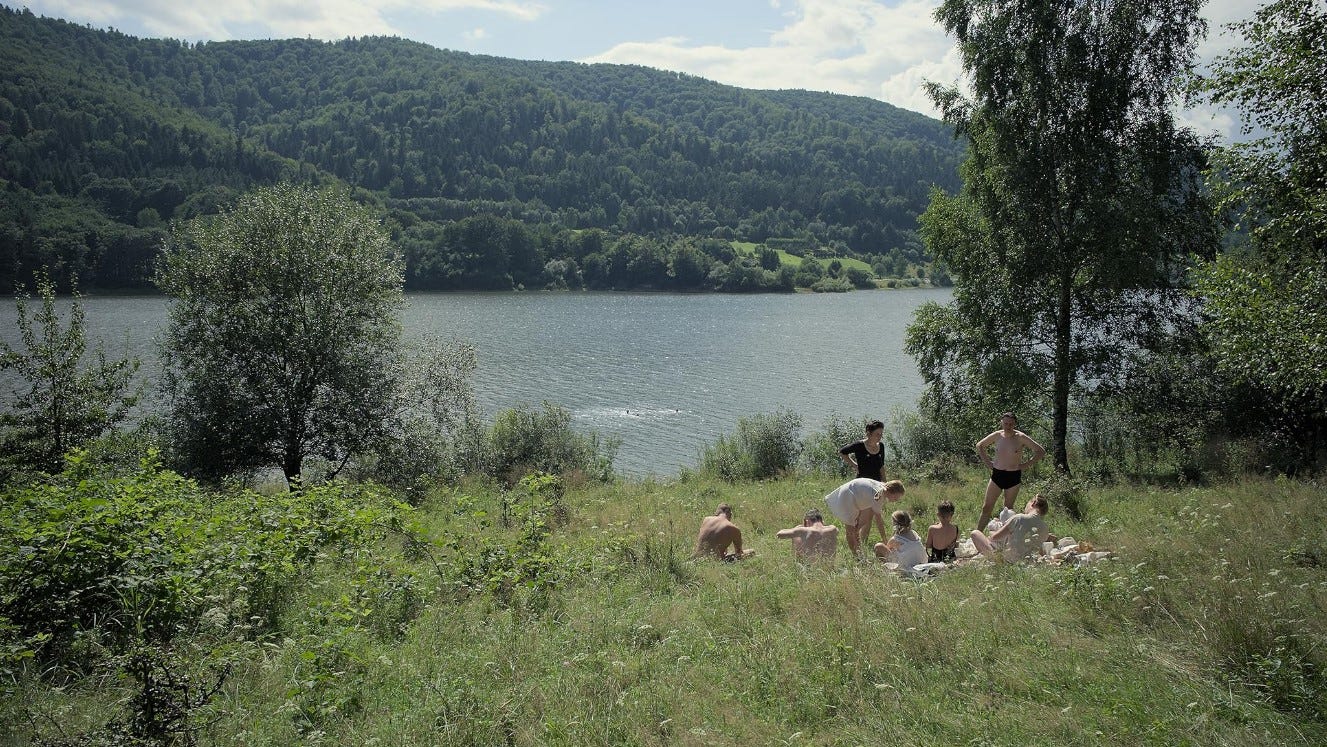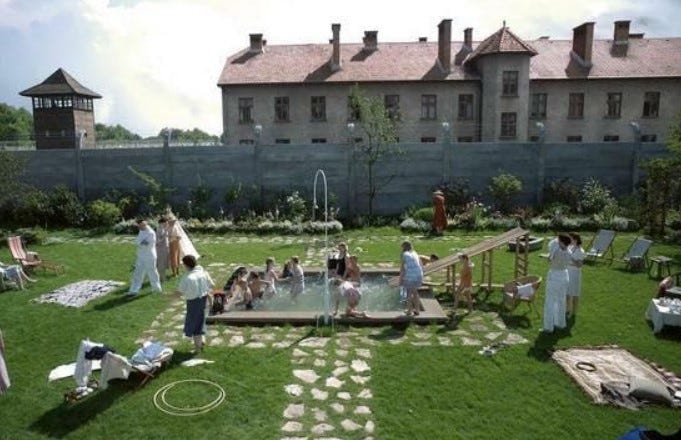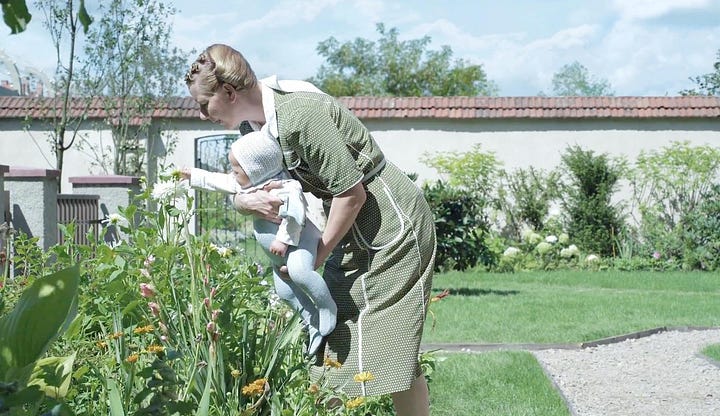On the big screen: Zone of Interest review
An SS Commandant and his wife play happy family as the horrors of Auschwitz unfold beyond their garden walls in Johnathan Glazer's Oscar-nominated masterpiece now showing at The Triskel.

While ostensibly yet another harrowing tale about the Holocaust, Jonathan Glazer’s latest film, The Zone of Interest, is anything but a typical World War II movie. Instead it feels strangely modern, like an extreme examination of bourgeois ideals; one in which a Nazi commandant named Rudolf Hoss and his wife Hedwig, seek to build an ideal home for their family. But it just so happens that their idea of paradise is located right next door to the Auschwitz concentration camp.
From the opening scenes of this unsettling drama, what is immediately striking about the Hoss family is the tranquility of their day to day life, allied to an uncanny ability to shut out the world beyond their garden wall.
In his 2008 film Hunger, Steve McQueen showed glimpses of a similar viewpoint, as a prison officer in the H Block comes home after work to his family, but whereas he is visibly affected by his day job and the viewer gets to see what his work entails, Rudolf Hoss and his wife go about their business with remarkable nonchalance and it is only their family life we are privy to.


Rudolf works almost non-stop, but on his rare days off, he takes his children swimming or fishing, while his wife stays at home tending the garden. Hedwig, for her part, keeps as busy as she possibly can, taking great pride in the upkeep of the house and the wide array of flowers and plants she has managed to cultivate.
When her mother visits to see their new home for the first time, she shows her some flower bushes set by the wall, which she hopes will grow quickly to offer some respite from the sound of trains, furnaces and gunshots that form the unfortunate backdrop to their idyllic life.
Explaining this in passing, as she is giving the grand tour of the garden to her mother, it’s as if Hedwig feels they have suffered the terrible misfortune of being forced to live beside an unpleasant neighbour, but one who she is vehemently unwilling to let spoil her dream home.
This soundscape of horror coming from the camp that runs throughout the film is almost a character in itself and creates a constant sense of uneasiness. Every so often, we are drawn uncomfortably closer and closer to the ongoing slaughter next door and the choice not to show these atrocities is a sign Glazer wants to say more than just look at all the awful acts human beings have perpetrated on one another throughout history or, look how awful the Nazis were.
Whether you agree with it or not, the Nazis are shown as having good sides. They celebrate work colleagues' birthdays. They admire a dog being walked on the street. They take pleasure in listening to music and the challenge for the viewer is, do you at any point sympathise with their situation, or can you see yourself in their actions and behavior?
The film is divided into sections separated by black, white and red screens, perhaps symbolising the Nazi colors. Being a Jonathan Glazer film there are a couple of unusual scenes, including recurring escapades shot in night vision, of a young girl leaving food for the prisoners to find, but it is all tied together really well.
There isn’t much lightness in the one hour forty six minutes, and any humour that does sneak its way through, is of the darkest variety. At one point Hedwig threatens a girl working in the house while she is eating breakfast, later on, her husband confesses to overthinking about work at a party, but how they express these sentiments make for some very uncomfortable laughs.
But Glazer has made a very unique film, which poses many difficult questions. The obvious one is how could any one in their right mind try to make a home beside a concentration camp and carry on as if it was a thing of nothing? But the more troubling question is, how do people in the western world live out lives of extreme comfort, all the while having a vague knowledge of the misery many millions of others must endure for this to happen?
The ten year wait from his last film Under The Skin, shows how much thought and consideration Glazer put into making this project and without a doubt, it is an enthralling exploration of whether human beings can happily live at the expense of their fellow people.
The Zone of Interest is showing at 8:15pm at the Triskel Cinema on Tobin St. until Wed 28th Feb. See here for tickets.



